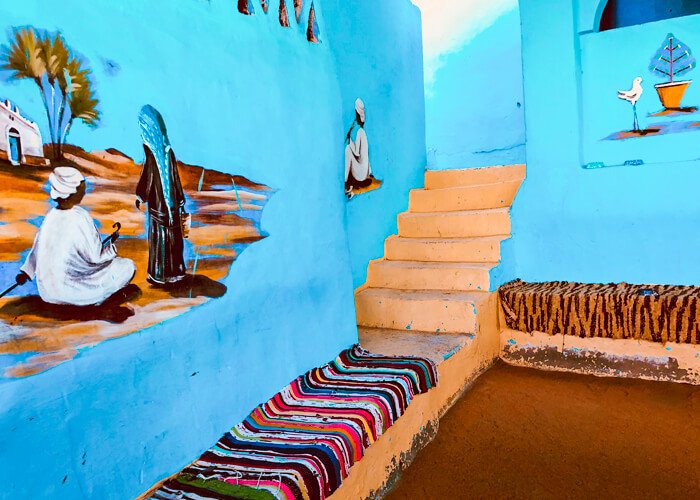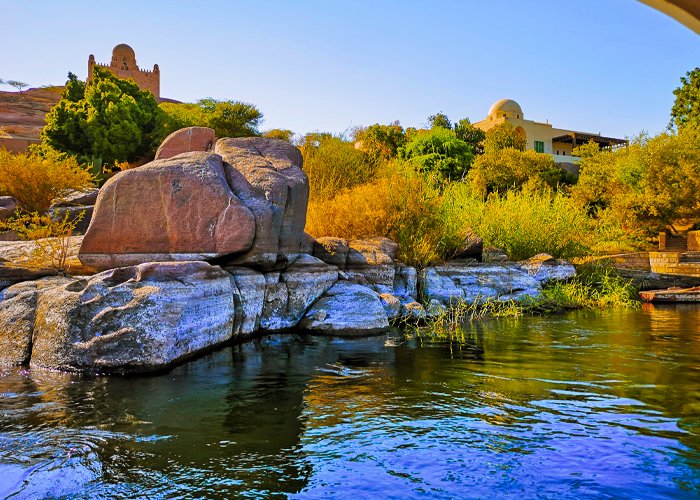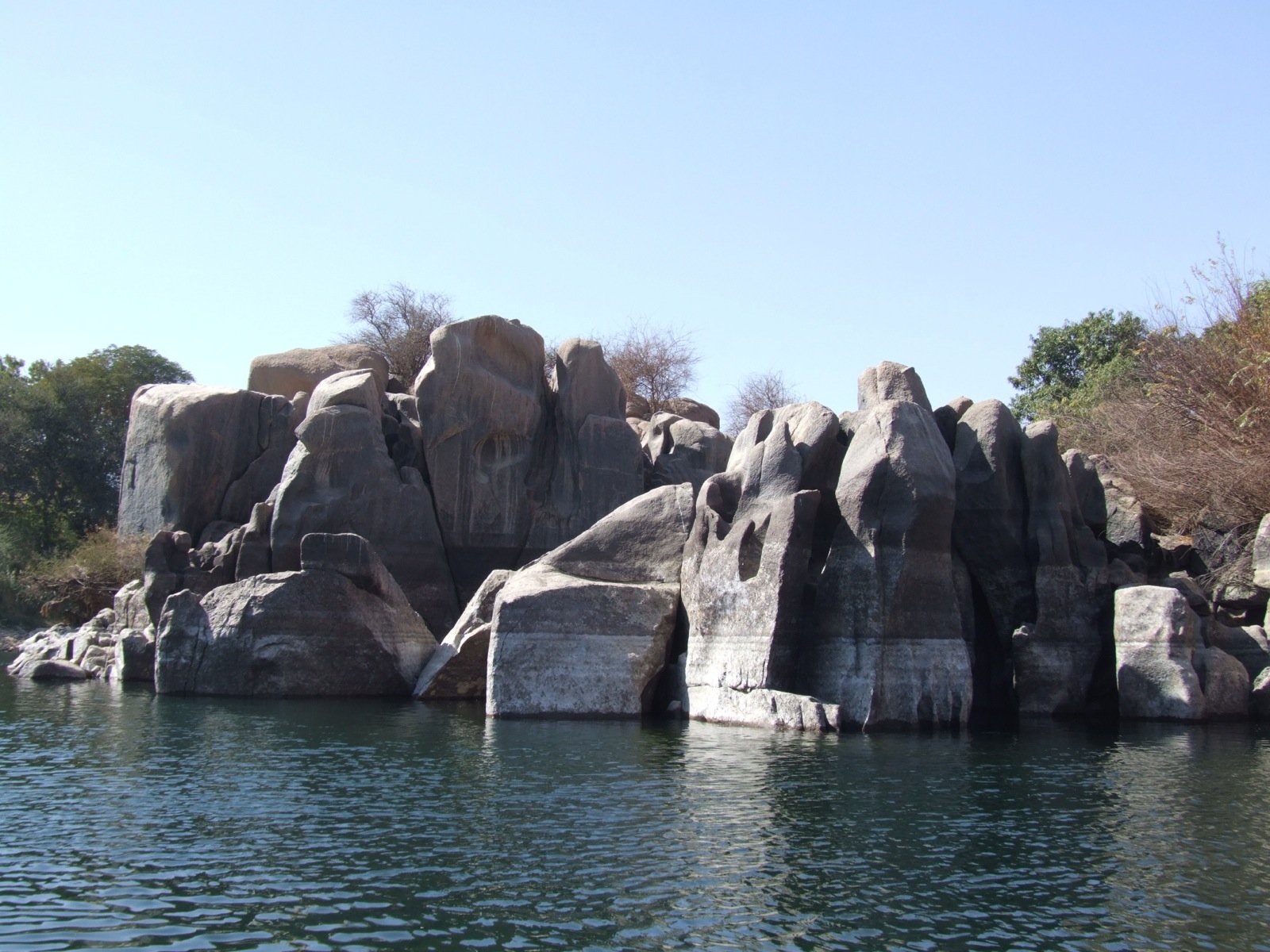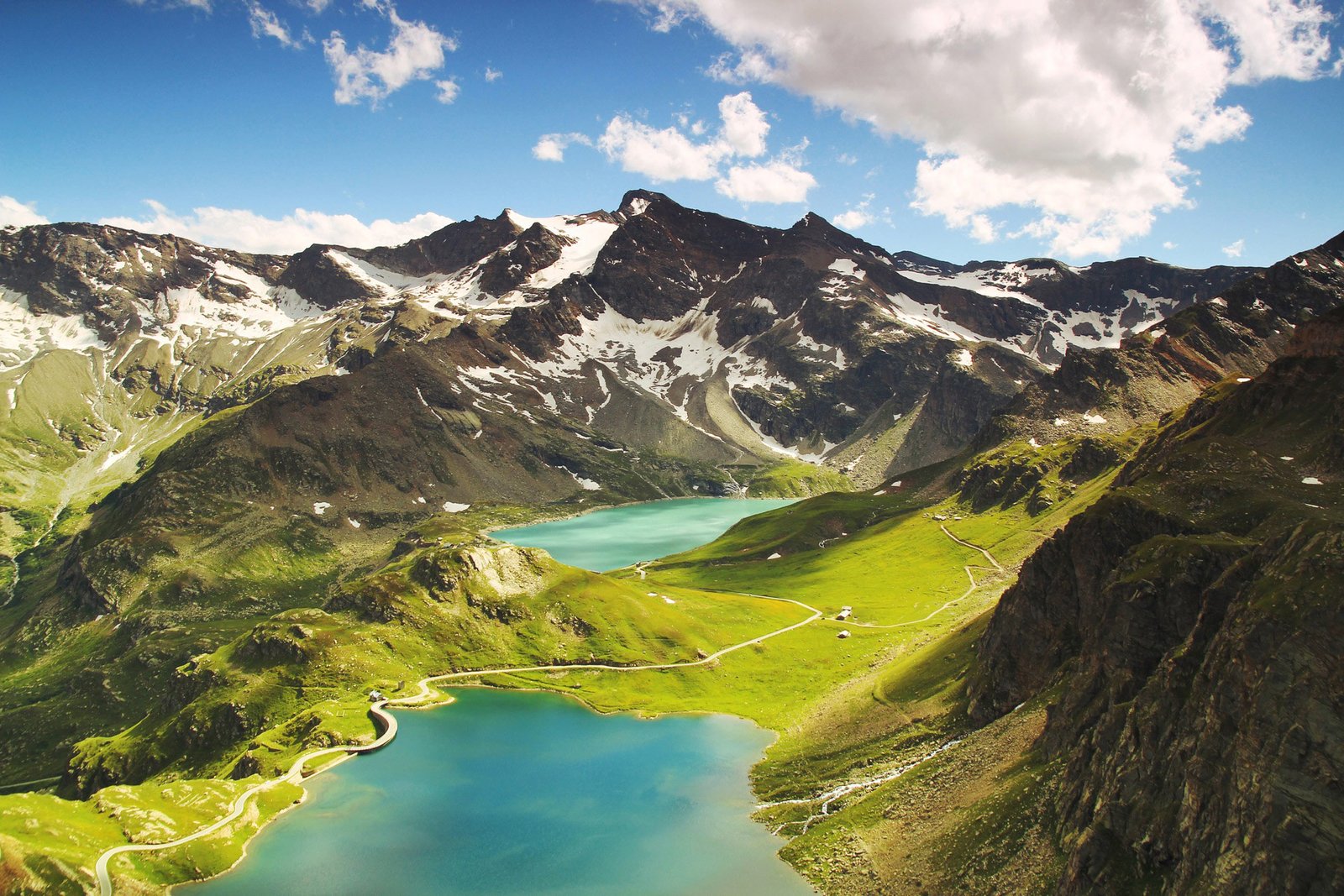Elephantine Island
Elephantine Island, the largest island on the Nile in Aswan, has been inhabited for thousands of years. This scenic and historic sanctuary provides a perfect blend of nature, archaeology, and cultural interaction. Whether traveling as part of a larger Egypt tour or exploring Aswan in-depth in 2026, this island is a must-add for those seeking a quiet yet enriching experience.
Nestled among date palms and arid hills, Elephantine offers a refreshing contrast to Egypt’s dusty mainland. For travelers interested in balancing iconic temples with green spaces and local life, this island delivers in every way.
A Walk Through Time: Archaeological Insights
Elephantine Island was once a strategic outpost and religious center. Its story unfolds across centuries:
- Ancient Egyptian City of Abu: Dedicated to the ram god Khnum, the site features remnants of a temple complex that dates back to the Old Kingdom (circa 3,000 BCE).
- Nilometer: Used to measure the Nile’s flood levels, this staircase-like structure offers insight into how Ancient Egyptians managed agriculture.
- Aswan Museum: Hosting pottery, tools, and statues from various eras, it helps explain the island’s long-standing role in trade and pilgrimage.
- Greco-Roman Ruins: Scattered foundations and rock-cut tombs reflect Elephantine’s continued importance during later empires.
Walking among crumbling walls and stone quarries, travelers experience layers of civilization shaped by the Nile for millennia.

Nubian Village: Cultural Connection
One of Elephantine’s highlights is its traditional Nubian Village, where visitors can:
- Enjoy brightly painted homes—often in blues, yellows, or reds—that signal hospitality and local pride.
- Sip hibiscus juice or mint tea with villagers, learning about daily life along the Nile.
- See domestic crafts, especially silverwork and woven textiles, often created by local artisans.
- Participate in musical performances, storytelling sessions, and traditional cuisine tastings.
In 2025, several community-based programs offer immersive homestays or half-day cultural visits, fostering meaningful connections between travelers and locals—far beyond typical tour interactions.
Botanical Retreat: Aswan Botanical Garden
Connected to Elephantine Island via a wooden footbridge, the Aswan Botanical Garden (also known as Kitchener’s Island) is a delight for nature lovers. Established in the late 19th century by Lord Kitchener, its attractions include:
- Rows of exotic palm trees, including Washingtonias, Phoenix palms, and giant date palms.
- Rare plant specimens imported from India, Australia, and Hawaii—creating a lush oasis in the desert.
- Winding paths shaded by jacarandas and fragrant flowers, ideal for photography and peaceful strolls.
- Benches overlooking the Nile, offering serenity and great relaxation.
For a sunrise or early-morning outing, the garden is especially enchanting, offering quiet reflection amid birdsong and cool river breezes.
Practical Tips for 2026 Visitors
For seamless enjoyment of Elephantine Island, consider the following tips tailored for modern travelers:
- Boat Access: Arrive via felucca or motorboat from central Aswan. Confirm return times, especially if you’re heading to other destinations afterward.
- Best Time to Visit: October to April offers comfortable weather (mid-20s °C). Avoid midday summer heat.
- Tickets & Guides: Entry is affordable and often included in combined Aswan cultural tours. Licensed guides add depth with anecdotes and historical context.
- Dress & Gear: Light, modest clothing; comfortable walking shoes; sun hat; sunscreen; and water.
- Photography: Bring wide-angle lenses for temples and close-ups for village life. Sunrise and sunset offer magical light.
- Local Support: Purchase crafts thoughtfully—your small contributions help sustain community projects.
By 2025, eco-tours are more popular, with some agencies offering zero-waste picnics and eco-friendly boat options, ideal for mindful travelers.
Half-Day Itinerary Suggestion
Here’s a streamlined schedule for visiting Elephantine Island from Aswan in 2025:
- 8:00 AM – Boat departs for Elephantine.
- 8:15 AM – Arrive and tour archaeological remains (Nilometer, Temple ruins, Aswan Museum).
- 9:15 AM – Visit Nubian Village; cultural exchanges and refreshments.
- 10:15 AM – Cross over to the Botanical Garden; enjoy a 45–60 minute stroll.
- 11:30 AM – Boat returns to Aswan.
- 12:00 PM – Arrive back and continue with Aswan sightseeing, felucca rides, or a Nile lunch cruise.
This schedule offers a balanced mix of history, culture, and greenery within a thoughtful half-day.
Recommended Combined Experiences
Elephantine Island works best when paired with other Aswan gems:
- Philae Temple: A brief boat ride away, combining spiritual depth with island ambiance.
- Aswan High Dam: Nearby for insights into modern engineering history.
- Unfinished Obelisk: A glimpse into ancient stone-carving techniques.
- Felucca Ride: A relaxing sail at sunset with Nubian folk music if you spend the evening on Elephantine.
These layered experiences give travelers a full immersion into Aswan’s cultural and natural diversity.
Personal Stories from Travelers
Many tourists share transformational moments on Elephantine Island:
“Walking across the Botanical Garden at dawn was a dream—I thought I’d seen the Nile’s beauty before, but this was a new kind of quiet wonder.”
“My afternoon homestay in the Nubian village was full of colors I never knew existed—bright zellige patterns, jasmine tea, and stories that made the island feel alive.”
These narratives capture the emotional depth travelers discover while exploring beyond iconic sights.

Why Elephantine Island Matters in 2026
In today’s travel landscape, more people seek depth over spectacle, favoring lesser-visited sites that offer authenticity and reflection. Elephantine Island stands out as:
- A cultural bridge: ancient history meets vibrant living traditions.
- A natural retreat: lush greenery amid desert surroundings.
- An accessible highlight: easy to include in Aswan itineraries.
- A sustainable choice: supporting local communities and ecological awareness.
As international travelers head to Egypt in 2025, Elephantine Island ticks all boxes—history, beauty, meaning, and sustainability.
Frequently Asked Questions
How much time should I allocate?
Plan for 3–4 hours including boat transfers, site visits, and a relaxed pace through the Botanical Garden.
Is it family-friendly?
Absolutely—children love exploring ruins, spotting birdlife, and meeting local families.
Can I visit after midnight?
No—limited evening events may occur, but public access ends at sunset. Ask your agency about special cultural nights.
Is navigation difficult?
Not at all—boats are regular, signs are clear, and guides are easily available at the dock.
Can I go independently?
Yes. Just purchase tickets at the landing area and hire a guide on-site if desired.
Booking Elephantine Island with Your Agency
To enhance traveler experience, your tour agency may offer packages like:
- Half-day cultural discovery tour: Includes museum, village, garden.
- Family-friendly day: Short felucca ride, ruins, crafts workshop, and picnic.
- Sunrise serenity experience: Pre-dawn boat ride, guided garden walk, and photographic stops.
Each package includes licensed guides, bottled water, collectors’ crafts, and flexible scheduling to fit into broader Egypt itineraries.
Final Reflection: A Hidden Nile Treasure
Elephantine Island is a testament to Egypt’s wholesome cultural landscape—quiet, green, historic, and alive. In 2025, as travelers favor depth over mass tourism, this serene island offers a unique chance to see the Nile in a different light: through village windows, among archaeological remains, and under palm-fringed skies.
For those ready to step off the beaten path and into a timeless oasis, Elephantine offers an experience both uplifting and unforgettable. Add it to your Egypt journey and discover the Nile’s gentle gem.




